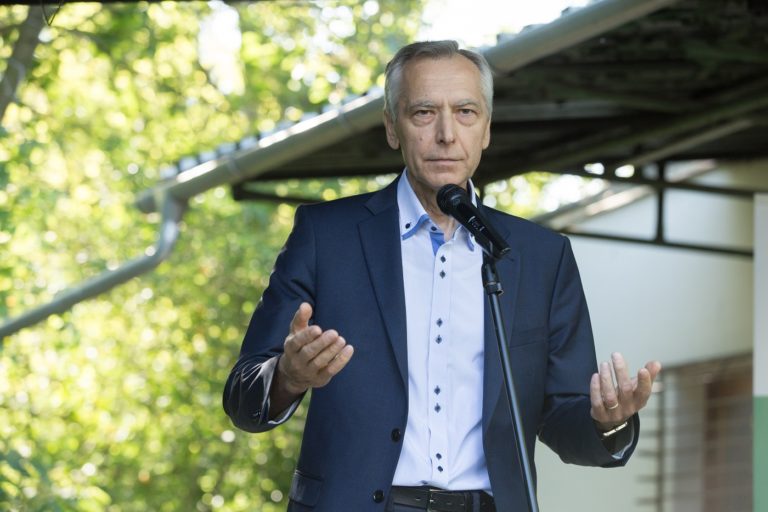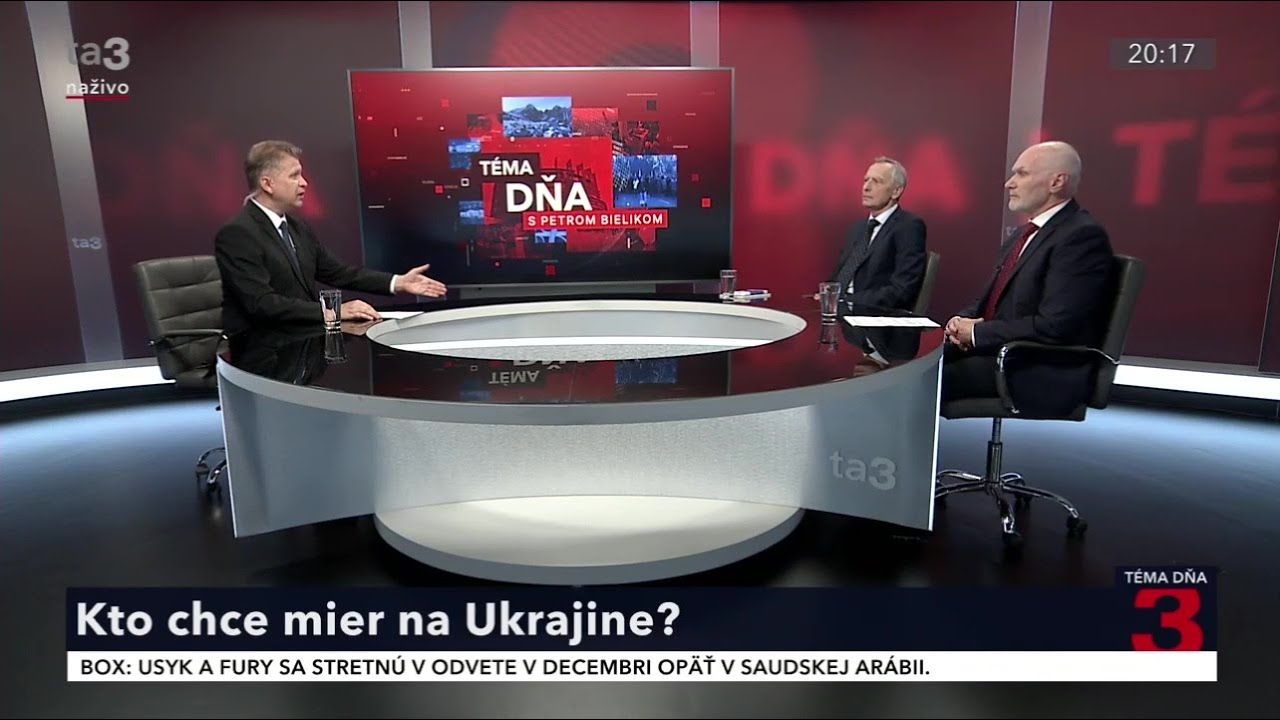Category: Jazyk
-
Ústavný súd posúdi ústavnosť častí zákonov týkajúcich sa manželstva
4. júna 2024 je presne desať rokov od prijatia novely Ústavy SR, ktorou sa do jej článku č. 41 vložila definícia, ochrana a podpora manželstva ako jedinečného zväzku medzi mužom a ženou. Okrem toho boli uplatnené dôležité zmeny v systéme slovenského súdnictva. Iniciatívu KDH pod vedením Jána Figeľa podporila a o zmeny v súdnictve rozšírila
-
Uplynulo desať rokov od vloženia definície manželstva do Ústavy SR, Figeľovu iniciatívu vtedy podporil aj Smer-SD
V utorok uplynulo desať rokov od prijatia novely Ústavy SR, ktorou sa do ústavy vložila definícia manželstva ako jedinečného zväzku medzi mužom a ženou. Okrem toho boli uplatnené dôležité zmeny v systéme slovenského súdnictva. Iniciatívu KDH pod vedením Jána Figeľa podporila vtedy aj strana Smer-SD pod vedením Roberta Fica, čo viedlo k odhlasovaniu legislatívneho návrhu
-
Úniu rozvracajú poslanci z PS tým, že pretláčajú potrat do európskeho práva, povedal Ján Figeľ, bývalý predseda KDH, ktorý do europarlamentu kandiduje za kresťanských demokratov.
Ján Figeľ. Foto: TASR/Michal Svítok „Ja vám hovorím, že napríklad to, že mnohí poslanci, aj z PS, pretláčajú potrat do európskeho práva, rozvracia Úniu,“ povedal v pondelok v relácii Na rovinu Ján Figeľ. „Akým právom to robia? Veď to nie je základné ľudské právo,“ vysvetlil ďalej Figeľ. Bývalý predseda KDH týmito slovami reagoval na slová
-
Vo Vatikáne sa diskutuje o mieri medzi Ruskom a Amerikou. Účastný bol aj Ján Figeľ
Portál Aktuality.sk vo štvrtok priniesol článok o zmierovacej misii slovenského politika a kandidáta KDH do europarlamentu Jána Figeľa medzi ruskou a americkou stranou. Figeľ vo Vatikáne s podporou pápeža Františka manažuje rokovania medzi zástupcami znepriatelených strán. Ako ste sa dostali k angažmánu pri týchto rokovaniach? Oslovili vás ľudia z vatikánskej kúrie? Ide o iniciatívu súkromnej Nadácie Clementy, ktorá sídli v Londýne. Vatikán vďaka
-
Figeľ vo Vatikáne moderoval mierové stretnutie Ruska a USA. Nie je jasné, kto na ňom bol
BRATISLAVA. Niekdajší eurokomisár a bývalý hlavný vyjednávač o vstupe Slovenska do EÚ Ján Figeľ v apríli vo Vatikáne viedol rokovanie s predstaviteľmi Spojených štátov a Ruskej federácie. Ich ambíciou je nastaviť novú úroveň vzťahov v Európe a prispieť k zastaveniu vojny na Ukrajine. O udalosti informovali vo štvrtok Aktuality, podľa ktorých stretnutie nemenovaných predstaviteľov Washingtonu a Moskvy
-
Kto chce mier na Ukrajine? – Téma dňa na TA3
Slovo mier už prestáva byť v EÚ tabu. Osvojuje si ho viacero politických strán, hovorí o ňom čoraz viac politikov. Napríklad český prezident Petr Pavel, ktorý najnovšie tvrdí, že treba zastaviť vojnu a začať vyjednávať. O téme sme sa rozprávali s Jánom Figeľom a Mariánom Kollárom. Samosprávy bilancovali. Nešlo len o peniaze, ale aj o
-
Building Peace Beyond Borders: An Initiative organized at the Vatican
The legacy of the Venerable Robert Schuman, often hailed as the founding father of a united Europe, continues to inspire efforts to build peace across the continent. Schuman’s guiding principle, “Economic progress must go hand in hand with moral progress,” remains a central tenet for those dedicated to fostering harmony and cooperation. Monsignor Bernard Ardura,
-
Úsilie o mier inšpirované Schumanom [EWTN/TV LUX]
Reportáž prebratá z: https://www.youtube.com/watch?v=zY17-NhT_nk&ab_channel=EWTN https://www.tvlux.sk/archiv/play/_32827









![Úsilie o mier inšpirované Schumanom [EWTN/TV LUX]](https://janfigel.com/wp-content/uploads/2024/05/usilie-o-mier-inspirovane-schumanom-ewtn-tv-lux.jpg)